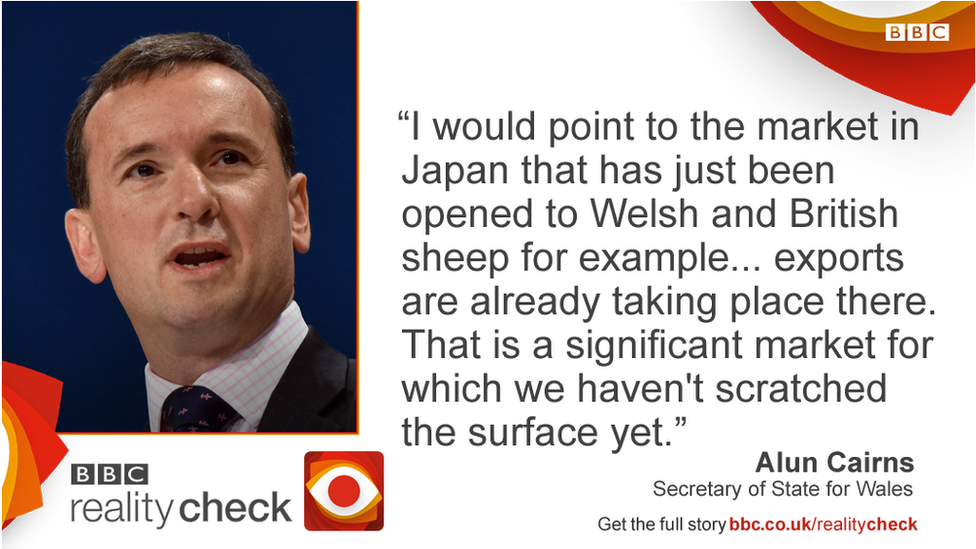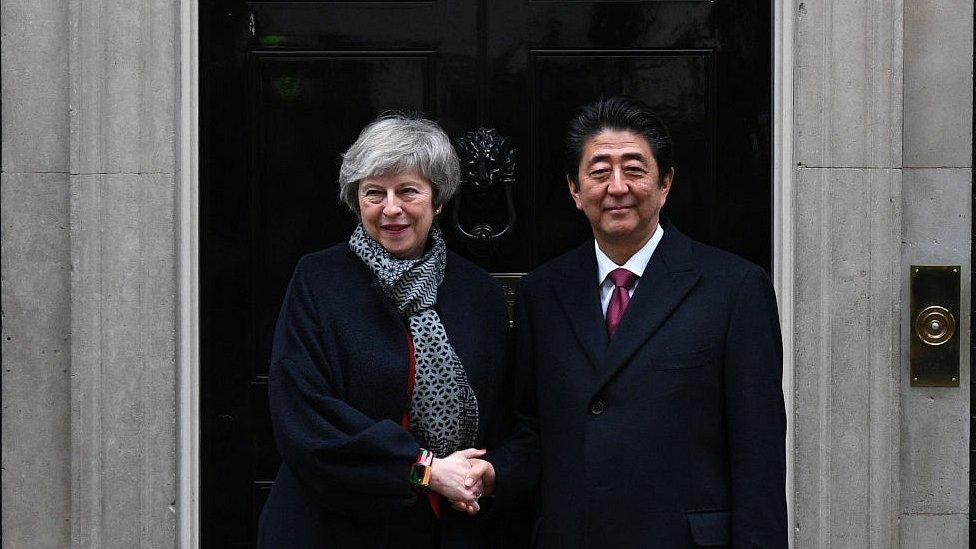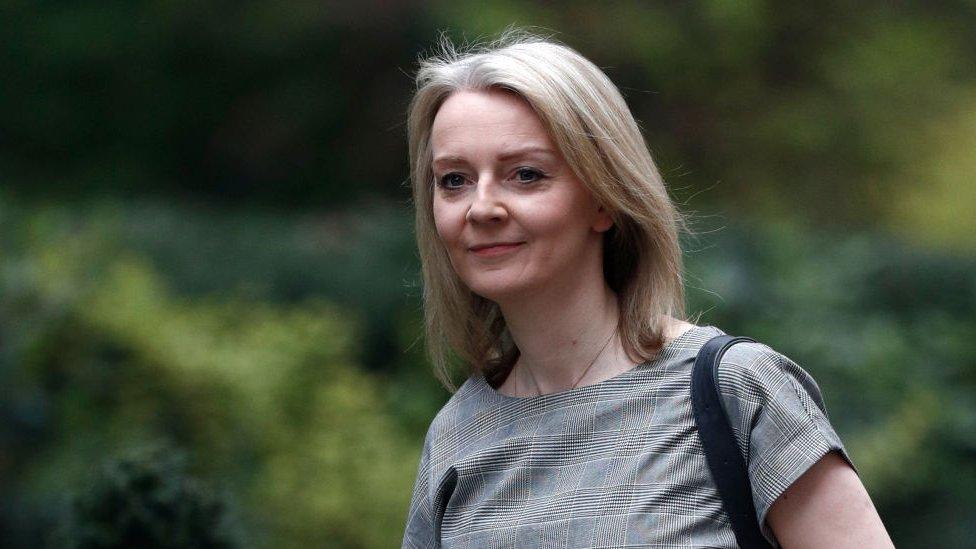Can farmers send lamb to Japan after Brexit?
- Published

The claim: A significant new market has just opened in Japan for the export of UK sheep meat (lamb).
Reality Check verdict: It is correct to say that Japan has just opened its market to UK lamb imports. But the government's own estimate of the potential worth of the agreement suggests it will be a drop in the ocean compared with current UK lamb exports to the EU.

Welsh Secretary Alun Cairns was asked on BBC Radio 4's Today programme to explain what he would say to Welsh sheep farmers who are worried that they could face tariffs (taxes on imports) of around 40% on the lamb they export to the European Union, if there is a no-deal Brexit.
He said he'd point to a "significant new market" in Japan.
An agreement for Japan to open its market to imports of UK lamb and beef was signed in January this year, external during the visit of Japanese Prime Minister Shinzo Abe.
It was not part of any negotiations on post-Brexit trade arrangements. Imports of lamb and beef from the UK had been banned since the BSE crisis in the 1990s.
Japan does not charge tariffs on the import of lamb from any country, so the agreement is obviously good news for UK lamb producers. It will continue in the event of a no-deal Brexit.

Former Prime Minister Theresa May with Japanese Prime Minister Shinzo Abe
When it was signed in January, the government said it could be worth roughly £52m over the first five years of access - so about £10.4m per year.
The National Farmers' Union says current UK lamb exports to the European Union are worth £389m per year.
So if the Japanese agreement performs as well as expected, it could account for 2.67% of current exports to the EU.
In other words it isn't a significant market in the context of what UK lamb producers stand to lose, if tariffs averaging about 40% are imposed on lamb exports to the EU as a result of a no-deal Brexit.
At the moment, because the UK is still an EU member and part of its single market and customs union, they don't pay any tariffs on these exports to the EU.

New International Trade Secretary Liz Truss has said signing a trade deal with the US is the government's "top priority"
Even without tariffs, exporters will have to deal with what are known as "non-tariff barriers" outside the single market such as additional paperwork and traceability checks.
There are, of course, other markets that UK exporters can seek to exploit - Mr Cairns mentioned a potential deal to export British beef to China as one example.
But the UK currently exports about 40% of the lamb it produces, and the European Union accounts for more than 90% of those exports.
No other country or combination of countries would be able to replace the European market in the short term, and that is what causes farmers such concern.